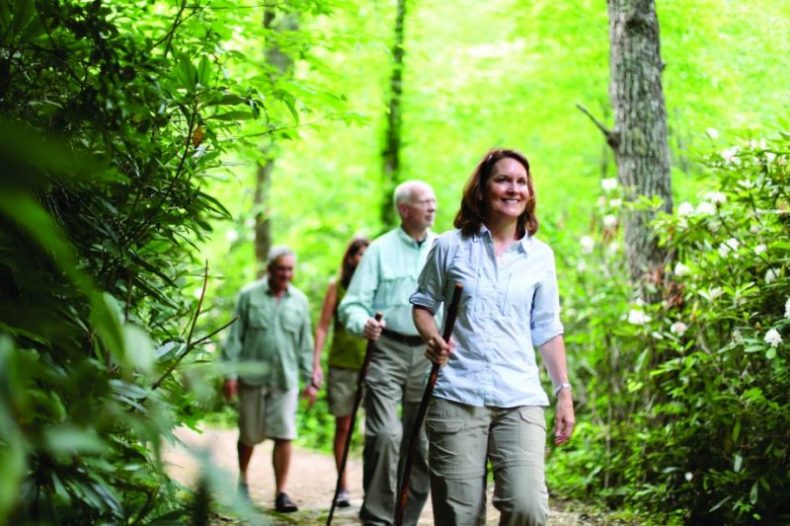ON BEHALF OF MEDICAL GROUP OF THE CAROLINAS—MOUNTAIN PARK
About one in eight women in the United States will develop invasive breast cancer over the course of her lifetime. For women in the U.S., breast cancer death rates are higher than those for any other cancer, besides lung cancer.
A woman’s risk of breast cancer nearly doubles if she has a first-degree relative—such as a mother, sister or daughter—who has been diagnosed with breast cancer. Less than 15 percent of women who get breast cancer have a family member diagnosed with it.
In fact, we have absolutely no control over the most significant risk factors for breast cancer: gender and age. So what should we do? Awareness and education are key. We can fight breast cancer by educating ourselves about the importance of early detection and the risk factors we can control. We can find power in being aware of our bodies and raising awareness in others.
Though we can’t control our gender or age, there are some ways to reduce your risk for breast cancer. Breast cancer prevention begins with healthy habits — you can beat the odds by being physically active, limiting alcohol intake and eating food that nourishes your body.
BREAST CANCER PREVENTION TIPS:
Maintain a Healthy Weight
Women who gain 55 pounds or more after the age of 18 have a 45 percent higher risk of developing breast cancer. Take steps to improve your diet now. Limit sugar, eat smaller portions and choose lots of fresh fruits and vegetables to limit weight gain and lower your risk of developing breast cancer.
Exercise More
Exercise can help you maintain a healthy weight, boost your body’s immune system, and may even lower estrogen levels, protecting you against breast cancer. The American Cancer Society recommends 150 minutes of exercise a week to lower overall cancer risk. That’s just 20 minutes a day.
Breastfeed Your Babies
Studies show that breastfeeding for a year or longer can reduce your risk of breast cancer. Women who breastfeed have fewer menstrual cycles, resulting in lower estrogen levels. They also tend to eat more nutritious food and lead healthier lifestyles while breastfeeding.
Limit Alcohol Consumption
Women who have three alcoholic drinks per week have a 15 percent higher risk of breast cancer when compared to women who don’t drink at all. Experts estimate that the risk of breast cancer goes up another 10 percent for each additional drink you have regularly each day.
Think Twice About HRT
The use of Hormone Replacement Therapy (HRT) after menopause increases the risk of developing breast cancer, according to the American Cancer Society. Be sure to talk to your doctor about the risks associated with HRT and whether it’s right for you.
Potential risk factors to be on the lookout for:
- Being female
- Increased risk after age 40
- Personal medical history
- Family medical history
- Caucasian descent
- Dense breast tissue
- History of taking DES medication
- Poor lifestyle habits
Cancer is personal and your treatment should be too. To learn more about personalized cancer treatment and breast cancer call 1-855-DNA-Gibbs.





